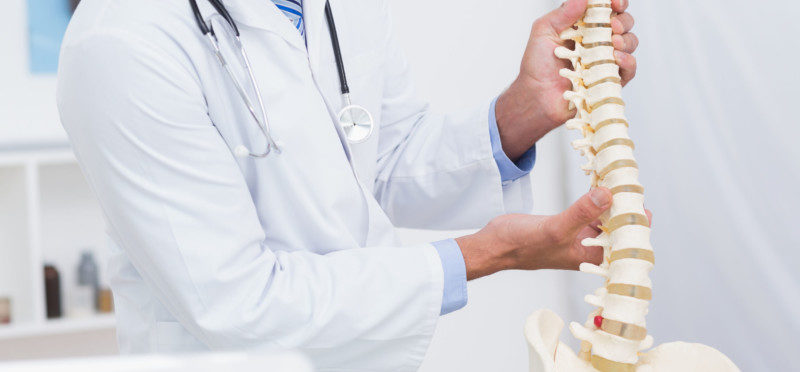Will My Hip Hurt After A Spinal Bone Graft Is Harvested?
Category: Spine | Author: Stefano Sinicropi

A spinal fusion is a common solution for patients suffering from prolonged disc pain that has not responded to conservative care. The goal of the procedure is to fuse two adjacent vertebrae into one longer complete bone in order to limit painful movement in the segment, but in order for this fusion to occur, additional bone needs to be inserted into the area. As this new bone heals between the segments, they end up fusing together into one complete bone, completing the fusion process.
But where does this new bone come from? There are a number of different bone graft sources available. Bone grafts may be harvested from a cadaver (allograft) or an artificial bone mix may be used, but one of the most common types of spinal bone grafts is an autograft. An autograft is a bone graft that is harvested from the patient, and for spinal fusion patients, this extra bone fragment is typically harvested from the hip. This oftentimes leads patients to wonder if both their hip and spine will be uncomfortable following a spinal fusion procedure. We explain if a spinal bone autograft will lead to hip pain in today’s blog.
Benefits Of An Autograft
An autograft harvested from the original patient offers a number of additional benefits compared to other sources of bone graft. For starters, there is no risk of disease transmission, and the risk of infection is much lower. Not only do bones harvested from a living patient tend to be stronger and provide a better foundation for fusion than those harvested from a cadaver, they also tend to be a bit cheaper.
However, the main downside of an autograft is that there will be an additional incision site and internal trauma that the patient will have to manage. Fortunately, your spinal surgeon can help you keep this discomfort to a minimum. The main way they do this is by using minimally invasive techniques to excise a portion of your hip bone. Since they are only removing a small portion of bone and not inserting hardware or suturing ligaments, the access site can be very small and the overall trauma to the area minimized. That said, the bone removal and tissue cutting will be traumatic on your body, and it’s completely normal to expect some mild discomfort in your hip after your spinal fusion procedure has been performed. You will not feel any discomfort during the autograft collection or the fusion procedure, as general anesthesia will be used to make the process painless.
Your hip discomfort is typically tied to the amount of bone that is collected for your spinal fusion procedure. For example, if only a small portion of hip bone was needed for the autograft, you may only have some general hip soreness for a couple of days after the procedure. Conversely, if you are having a multiple site fusion performed and a larger amount of hip bone is needed to create the autograft, your hip area may remain sore for a couple of weeks.
During this recovery period, it’s possible that your hip discomfort will affect your walking ability, but you will also be physically limited as a result of the spinal fusion, so most gait issues resolve before any major walking takes place. You’ll also want to be proactive in managing the surgical incision site from your spinal fusion and your bone graft collection during your recovery period. Change your dressings as recommended and work to keep the areas clean and dry. If you have any questions or concerns, reach out to your spine specialist.
Dr. Sinicropi has performed countless autograft collections for spinal fusion procedures, and he can help you overcome whatever spinal issue you’re facing. For more information, or for answers to questions about specific back problems, reach out to Dr. Sinicropi and the team at The Midwest Spine & Brain Institute today at (651) 430-3800.